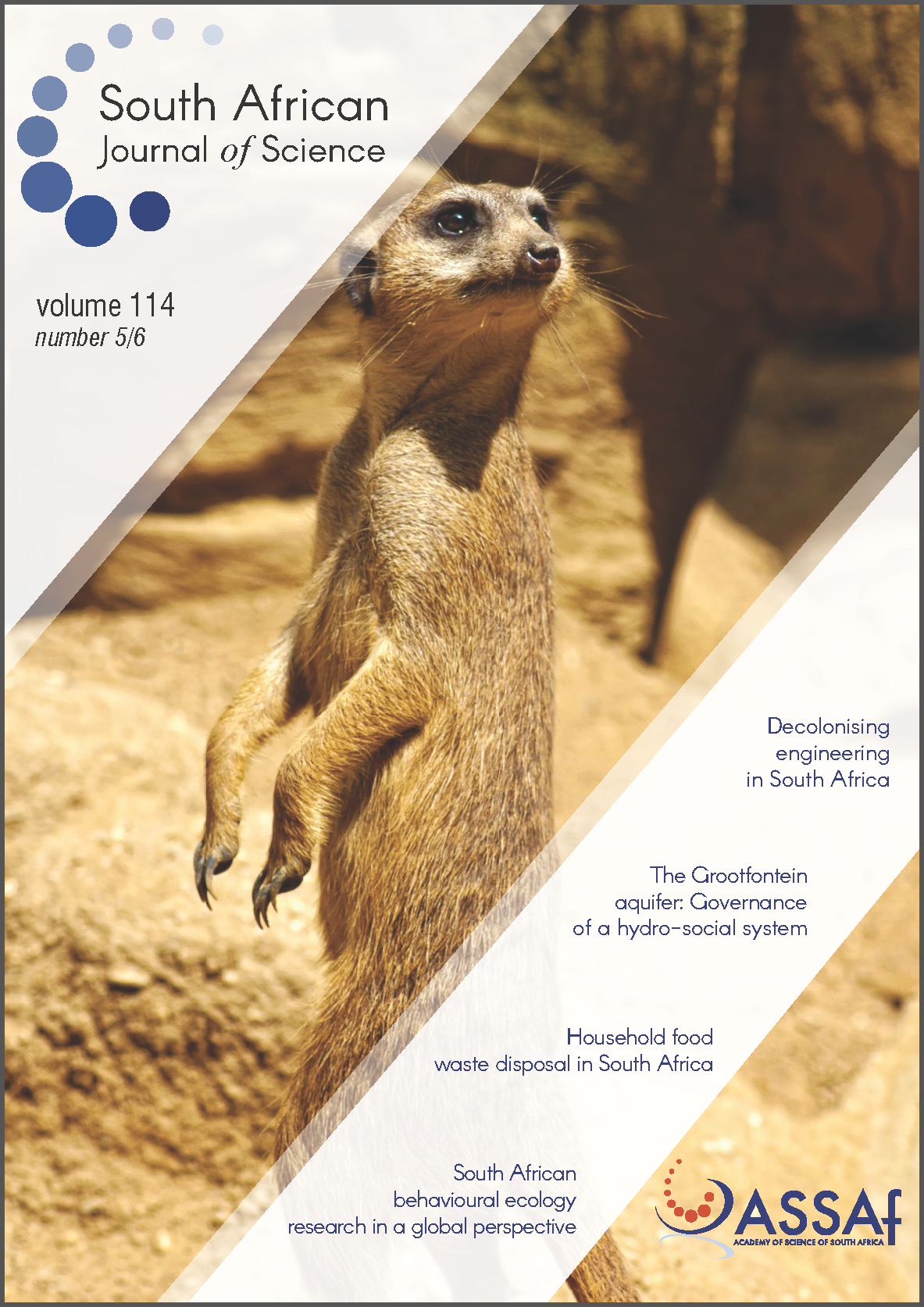Household food waste disposal in South Africa: A case study of Johannesburg and Ekurhuleni
DOI:
https://doi.org/10.17159/sajs.2018/20170284Keywords:
food security, municipal solid waste, socio-economic status, developing country, sub-Saharan AfricaAbstract
Food waste is becoming an important issue in light of population growth and global food security concerns. However, data on food wastage are limited, especially for developing countries. Global estimates suggest that households in developed countries waste more food than those in developing countries, but these estimates are based on assumptions that have not been tested. We therefore set out to present primary data relating to household food waste disposal for South Africa within the sub-Saharan African context. As the Gauteng Province contributes about 45% of the total municipal waste generated in South Africa, the case study area covers two of the large urban metropolitan municipalities in Gauteng, namely Ekurhuleni and Johannesburg, with a combined population of 8.33 million, representing nearly 15% of the South African population. Municipal solid waste characterisation studies using bulk sampling with randomised grab sub-sampling were undertaken over a 6-week period during summer in 2014 (Johannesburg) and 2016 (Ekurhuleni), covering a representative sample of the municipal waste collection routes from households in each of the two surveyed municipalities. The food waste component of the household waste (excluding garden waste) was 3% in Ekurhuleni and 7% in Johannesburg. The results indicate that an average of 0.48 kg (Ekurhuleni) and 0.69 kg (Johannesburg) of food waste (including inedible parts) is disposed of into the municipal bin per household per week in the two municipalities, respectively. This translates into per capita food waste disposal of 8 kg and 12 kg per annum, respectively, in South Africa as compared to the estimated 6–11 kg per annum in sub-Saharan Africa and South and Southeast Asia.
Significance:
- Research on food waste in developing countries is limited.
- This study is the first of its kind undertaken in South Africa.
- Food waste research is important to address food security issues.
- This study provides evidence to support Sustainable Development Goal 12.3.
Published
Issue
Section
License

All articles are published under a Creative Commons Attribution 4.0 International Licence
Copyright is retained by the authors. Readers are welcome to reproduce, share and adapt the content without permission provided the source is attributed.
Disclaimer: The publisher and editors accept no responsibility for statements made by the authors
How to Cite
- Abstract 4968
- PDF 3235
- EPUB 263
- XML 348












.png)